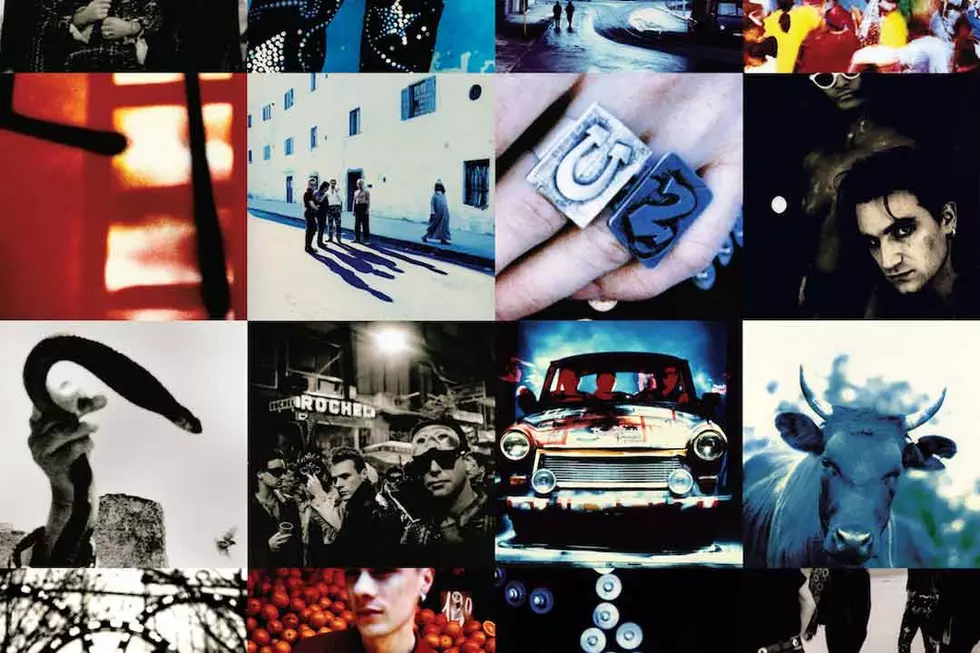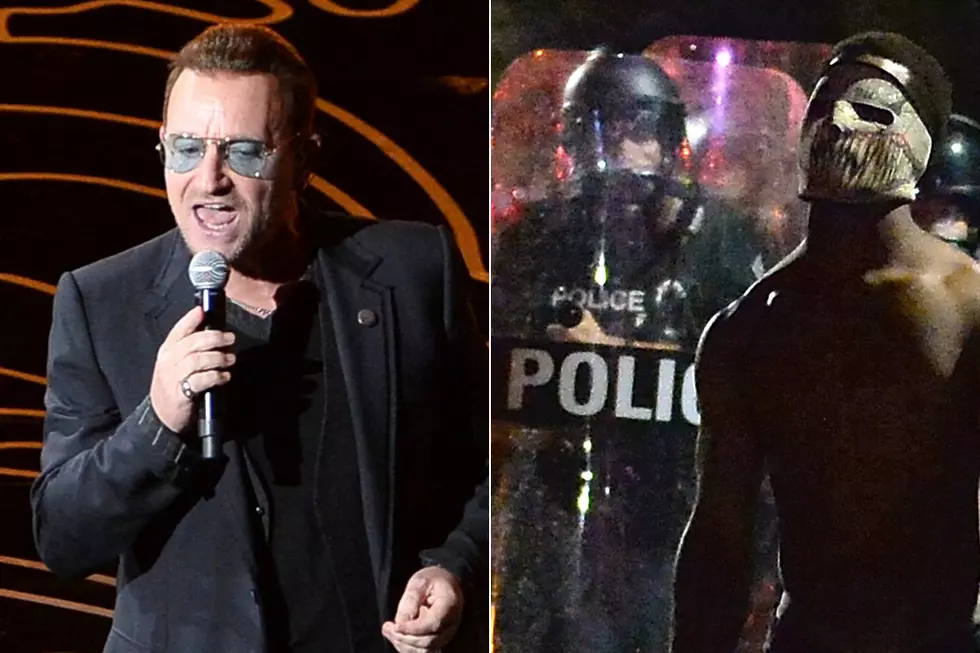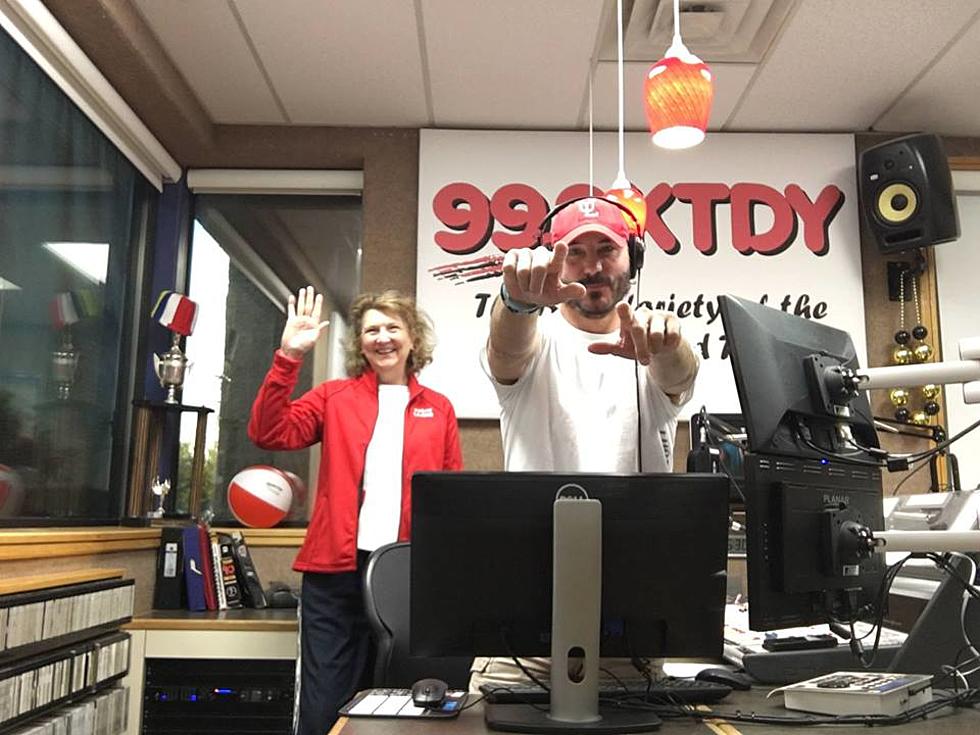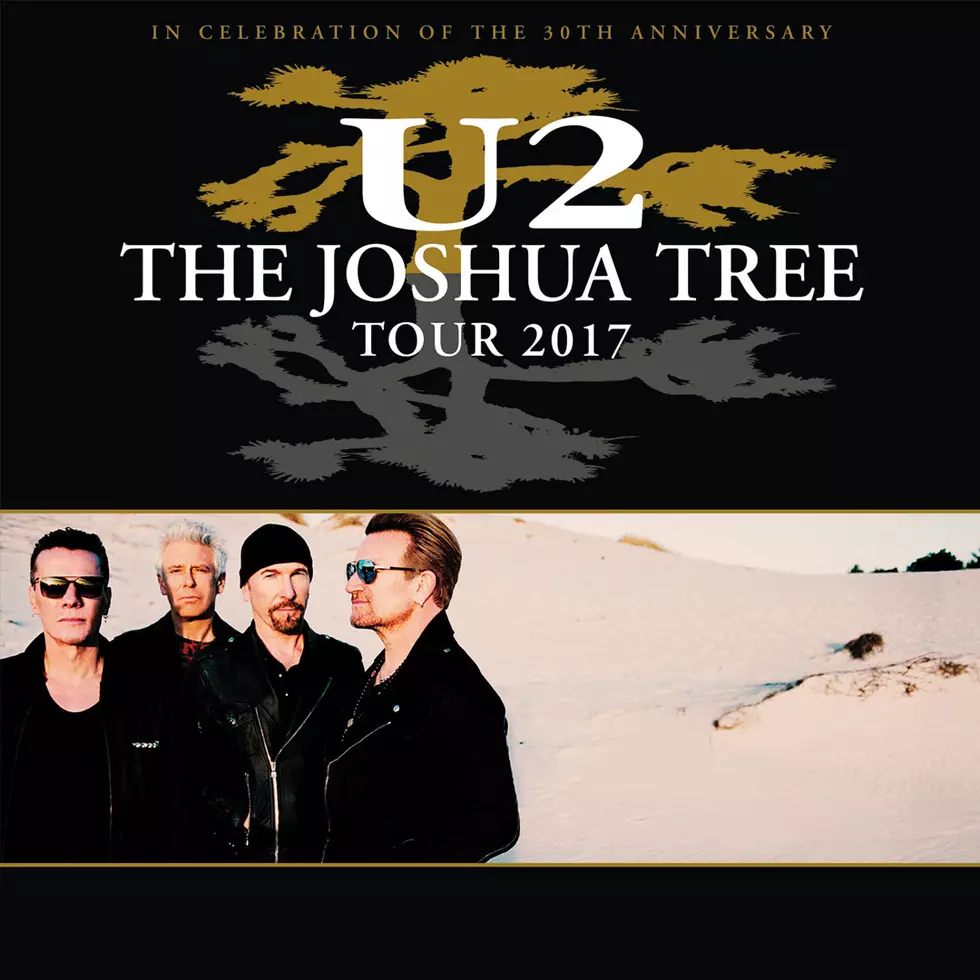
How U2 Reinvented Themselves on ‘Achtung Baby’
Up until the arrival of Achtung Baby, U2 had been all about evolution, not reinvention. But with their seventh album – released on Nov. 18, 1991 – they changed all that.
From their 1980 debut LP, Boy, and their MTV breakthrough War in 1983 to their mainstream No. 1 The Joshua Tree four years later and the half-live, half-roots-digging Rattle and Hum the following year, a line can be connected through each of the band's first six albums.
But Achtung Baby sounds little like what came before it. There are songs, here and there, that can be traced to The Joshua Tree's grander moments, and the atmospheric use of keyboards that drives so many of the tracks goes back to 1984's The Unforgettable Fire. Still, Achtung Baby has more in common with David Bowie's heralded Berlin Trilogy than anything found in U2's growing catalog at the time.
This is no accident. Early sessions for the album were recorded in the same German studio, and made with the producer who helped shape Bowie's most daring work: Brian Eno. And like with Bowie's trio of late-'70s albums, U2's project came from the artist's desire to move on from a dark period.
Following the global success of The Joshua Tree, U2 became one of the biggest bands in the world. They were celebrated for their arena-sized songs, political acumen and earnestness. The record led to a massive world tour that was partly folded into Rattle and Hum, which mixed live recordings with the group's attempts at an Americana album.
Watch U2 Perform 'Mysterious Ways'
Suddenly, the things that U2 were praised for – namely, their big, earnest songs – became a strike against them, as Rattle and Hum was derided for its self-seriousness, lack of humor ... and what right did an Irish band have to explore American roots music anyway?
They took it to heart. For the first time in their career, U2 didn't move forward in an expected way. Instead, they walked away from their comfort zone and started from scratch, using electronic, alternative and industrial musics as their new building blocks. They got as far away as they could from America, embracing end-of-the-century European music and its varying shades of electronica.
It wasn't a smooth transition at first. The Berlin sessions stumbled, as band members fought for stability and direction – and with each other, with Bono and the Edge on one side, and the rhythm section of Adam Clayton and Larry Mullen, Jr. on the other – over their new sounds.
So, they went back to Dublin, and with Eno and Daniel Lanois (both of whom had worked on The Unforgettable Fire and The Joshua Tree) behind the boards, they slowly began to piece together the record that would become Achtung Baby.
When the album surfaced more than a year after work first started, it sounded little like the U2 fans had embraced just a few years earlier. The opening track, "Zoo Station," begins with distorted squelches that sound an awful lot like someone just turned on a busted synthesizer that hadn't been plugged in for a decade, and somehow that loud, abrasive noise found its way onto the album.
Watch U2 Perform 'One'
Lyrically, they moved into new territory too, replacing the often politicized songs of their past with more personal looks at love, relationships and life. The songs are full of breakups, compromises, the birth-life-death cycle and affirmation that sometimes we all need a little push to get us through.
And for the next 55 minutes, the record slipped into this new model with a smirking, playful confidence that pretty much erased critics' claims that the band was made up of self-righteous classicists.
Achtung Baby was anything but. Its trips into electronic music, while jarring at first, sound effortless now, and the times U2 update their past – like on the sweeping "Who's Gonna Ride Your Wild Horses" and the album's big ballad and most enduring cut, "One" – the links fit together naturally. In a way, it's U2's most representative work, even without the Edge's shimmering guitar – big, epic, occasionally ponderous, often tongue-in-cheek; next to the career-defining The Joshua Tree, it's their best.
Fans and critics embraced the album, which debuted at No. 1 (just like their last two records, and the two after that). Many of its songs, despite their corrosive and anthem-shearing nature, went on to become foundations of U2's live sets and templates for their future: "Even Better Than the Real Thing," "One," "Who's Gonna Ride Your Wild Horses," "The Fly," "Mysterious Ways." All classics.
From here on out, U2 would challenge their fans with each new record. Zooropa, from 1993, was Achtung Baby's less-formed sequel, 1997's Pop was a techno dance record, 2000's All That You Can't Leave Behind was the back-to-basics album nobody saw coming and so on. There have been bumps along the way, for sure, but the band has rarely been boring. Their constant reinvention, which started on Achtung Baby, makes sure of that.
The Albums That Almost Killed Their Careers
More From 99.9 KTDY





![Why Is U2 Hated In Their Homeland Of Ireland? [Video]](http://townsquare.media/site/29/files/2017/07/GettyImages-803018888.jpg?w=980&q=75)

![Tickets For U2 ‘The Joshua Tree 2017′ In New Orleans On Sale Now! [Video]](http://townsquare.media/site/29/files/2017/06/GettyImages-92806391.jpg?w=980&q=75)


